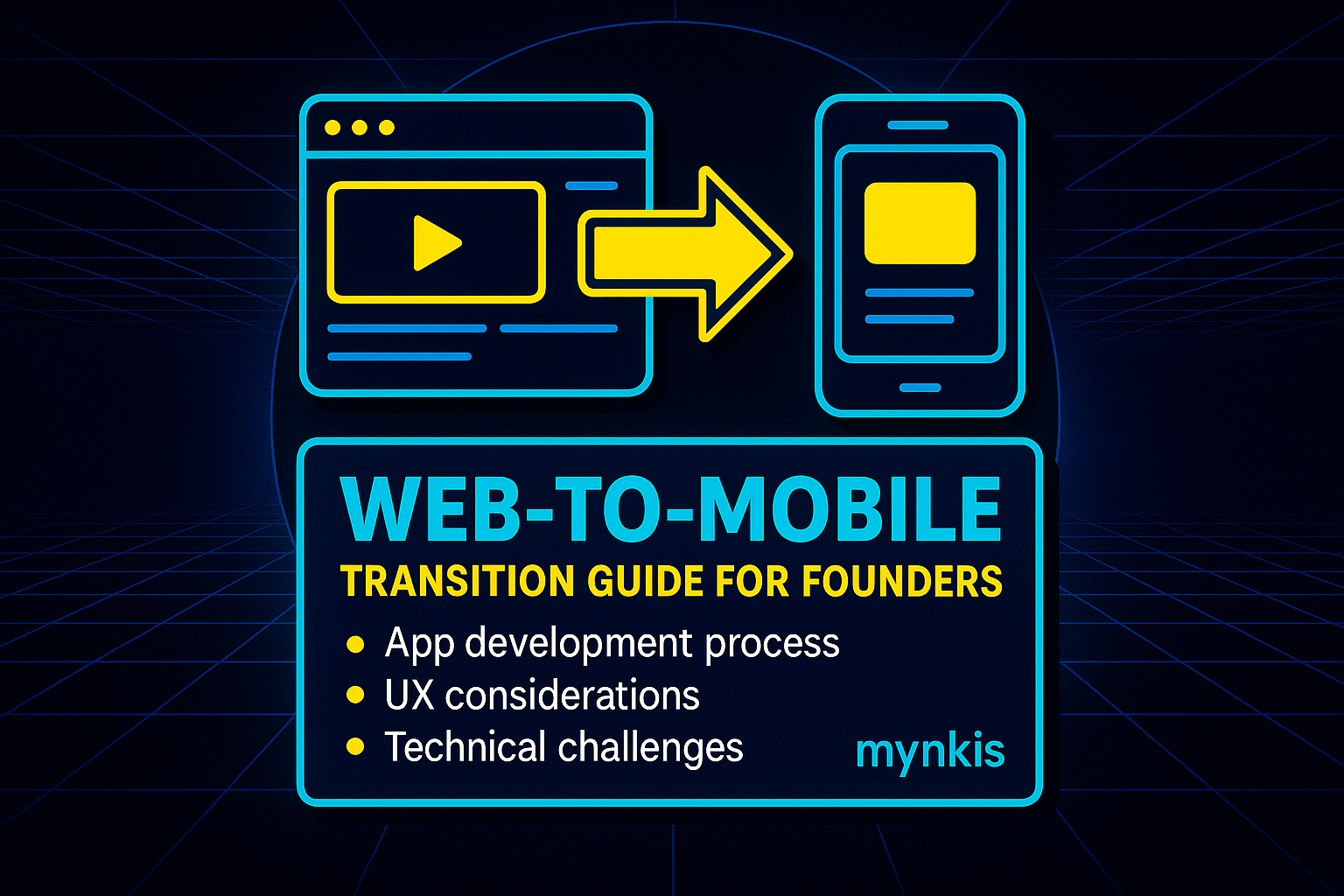Schedule a Demo
Mobile isn't just an option for today's startups and enterprises; it's a necessity. When I collaborate with founders, the conversation often drifts toward how indispensable a mobile app has become for business growth and user engagement. In my experience, startups that integrate mobile early not only scale faster but also gain a competitive edge in their respective markets.
The journey from a web-based platform to a mobile app might seem daunting at first glance. Yet, as I've guided founders through this process, the benefits become clear: enhancing user experience, accessing a broader audience, and leveraging device-specific features. However, transitioning isn't merely about replication; it's about reimagining your product for a different format. This means potentially reworking UX/UI to fit smaller screens, optimizing for performance, and ensuring data sync across platforms.
Before embarking on the shift, a careful assessment of your current web platform's strengths and weaknesses can inform your mobile strategy. In my consultations, I push founders to consider:
These considerations guide not only the development process but also set the foundation for your app's market success.
When it comes to developing a Minimum Viable Product (MVP) for mobile, the focus should be sharp and clear. From my experience, an effective mobile MVP zeroes in on core functionalities that solve key user problems or enhance their interaction with your product. Remember, an MVP is not a stripped-down version of your dream app but a strategic tool to learn and iterate quickly based on real user feedback.
Mobile design demands a different approach than web design due to the constraints of screen size and device capabilities. In workshops I conduct with design teams, we delve deep into the principles of thumb-friendly navigation, intuitive gesture controls, and visual hierarchy tailored for mobile screens. Your mobile app's user interface needs to facilitate quick, one-handed operations to maintain a seamless user experience.
As a founder weighing your options for development, cross-platform frameworks like React Native or Flutter can be game-changers. They allow for a single codebase to deploy on multiple platforms, thereby speeding up your time-to-market and reducing costs. However, it's important to recognize that while cross-platform solutions offer efficiency, achieving native-like performance and seamless integration with device hardware can sometimes require additional effort and expertise.
The backbone of a successful web-to-mobile transition lies in robust data synchronization. My discussions with back-end developers highlight the importance of API design that supports efficient, secure data syncing. Addressing challenges like offline capability, real-time updates, and maintaining a consistent user experience across different platforms requires careful planning and scalable architecture design.
Analytics play a pivotal role in the development cycle of mobile apps. I've seen how actionable insights from tools like Google Analytics for Firebase can drive iterative improvements. Founders should ensure their mobile app incorporates robust analytics to understand user behavior, optimize features, and guide further development efforts.
Navigating app stores like Apple's App Store and Google Play Store is a chapter on its own. Based on the latest insights from respected tech sources like Apple Developer and Android Developers, optimizing for app store algorithms can significantly impact visibility and download rates. Strategies around app descriptions, keywords, and in-app purchases play a crucial role in how your app is discovered and engaged with by users.
Scalability is at the forefront of any conversation I have with founders about mobile app development. Planning for scale means anticipating user growth, potential data spikes, and evolving feature sets. Future-proofing your app involves building on cloud platforms that allow flexible scaling and using modular architectures that can accommodate new technologies and user needs over time.
User feedback is gold in the realm of mobile app development. Through countless iterations, I've learned that engaging users for feedback early and often helps refine the product to better meet their needs. Establishing channels for users to provide input, whether through beta testing or in-app surveys, is key to continual improvement and user satisfaction.
In the era of digital privacy concerns, adhering to regulations like GDPR or CCPA isn't just good practice; it's a necessity. Security must be interwoven into every layer of your app's development. From secure data storage to encrypted communications, ensuring user trust in your product's safety is paramount, especially for mobile where sensitive data is frequently accessed.
A sustainable mobile development strategy supports not just immediate project needs but sets a course for long-term success and innovation. I advise founders to balance immediate product requirements with strategic goals for technology evolution, user acquisition, and monetization. This approach ensures your mobile app isn't just another entry in the App Store, but a dynamic tool that grows and adapts with your business and user base.
